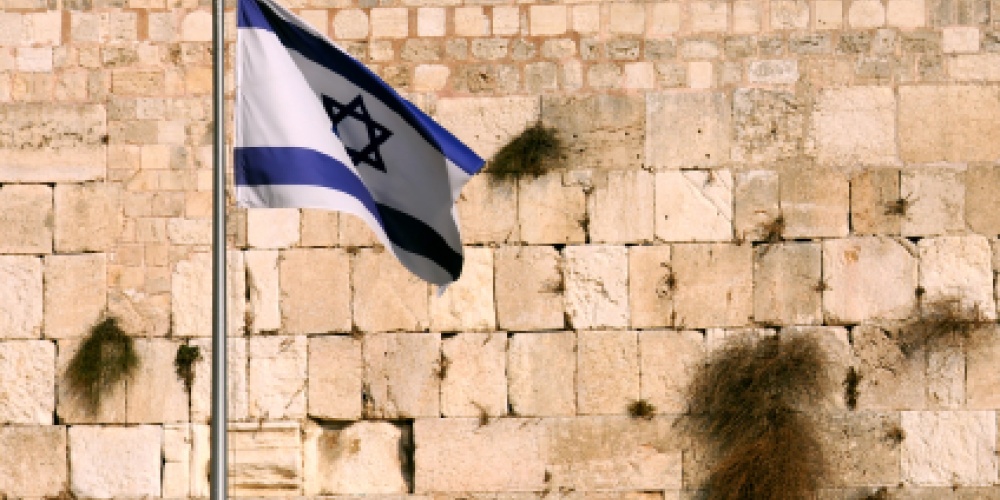
Numbers play a significant, if usually symbolic, role in Jewish thought. Perhaps the most symbolic number is seven, representing completeness; the most obvious example is Shabbat, the highlight that completes the week. Even our new year, Rosh Hashanah, takes place in the seventh month, and the holidays of Pesach and Sukkot are meant to be seven days long. Shavuot, the culmination of the exodus, is celebrated after seven weeks of seven days.
The number ten conjures up images of G-d's presence. G-d used ten utterances to create the world (Avot 5:1). There were ten plagues, the aseret hadibrot, and even the kabbalistic ten sefirot; while at the Seder, it is the number four that rules.
The number forty represents transformation, sometimes even a change of identity. After forty days, the legal status of a fetus changes from being "just water" to a viable potential life. The floodwaters lasted forty days, eradicating the corrupt world that had existed for the first ten generations of mankind. It was, Maimonides claims, "at the age of forty (that) Abraham recognized his Creator". Interestingly, Yitzchak married at age forty, marking the first Jewish marriage (Abraham and Sarah were still non-Jews when they married). Most significantly, Moshe spent forty days at Sinai receiving the Torah, thereby transforming the nascent nation from a band of slaves to servants of G-d. Unfortunately, it took forty years in the desert to complete the process entirely, developing the children of those slaves into a confident people ready to assert their national identity.
Forty years ago today, after a 1,900-year hiatus, Jerusalem was returned to the Jewish people. Fear gripped the entire Jewish world as a united nation fought courageously, and with great faith. Jerusalem was transformed from a city with a wall running through its heart to the city of golden splendour, and the echoes reverberated everywhere. In six short days, the course of Jewish history changed fundamentally. The hand of G-d was visible for all to see; and many felt that loving hand for the first time. The ba'al teshuva movement, born in 1948, became a budding adolescent in 1967. Americans made aliyah in numbers that had never been seen before or since. Jewish pride was palpable, and we marched forward with great expectations for the future.
The cry, "The Temple Mount is in our hands! Har habayit beyadeinu!" ushered in hope for the physical and spiritual strengthening of the Jewish people. And so much has been strengthened! But, alas, forty years later, our dreams for Jerusalem have not been fully realized. Peace appears further away than ever; unity among our people remains elusive. While the explosion in Torah observance and learning has been nothing short of phenomenal, many still view a life based on Torah in very negative terms. We, who treasure Torah above all else, have not adequately shown that the beauty of Torah can enhance life for Jews wherever they may fall on the religious (or irreligious) spectrum.
The Hebrew language contains two words for joy, sason and simcha. I recall hearing, many years ago (and I do not remember where, nor have I found the source), that sason is happiness tinged with sadness, while simcha is pure joy. Thus, for example, at a brit milah—which involves a measure of pain for the child—we say, "sas anochi , I rejoice over your words". Even at a sheva brachot, we wish the bride and groom a life full of sason v’simcha, as marriage involves moments when the joy of the wedding day is diminished.
Unfortunately, the capture of Jerusalem and the founding of the State of Israel is best described by the word sason, great joy mingled with too much sadness. May we soon merit seeing the day when "a’aleh et Yerushalayim al rosh simchati", when we will be able to "place Jerusalem above all my joy" (Tehilim 137). We yearn for a Jerusalem of only simcha, when the city will be one "that unites its inhabitants together" (Tehilim 122), and where the nations of the world "shall beat their swords into ploughshares and their spears into pruning hooks; nation shall not lift up sword against nation, nor shall they learn war anymore" (Isaiah 2:4). And on that day, may we rejoice together.


